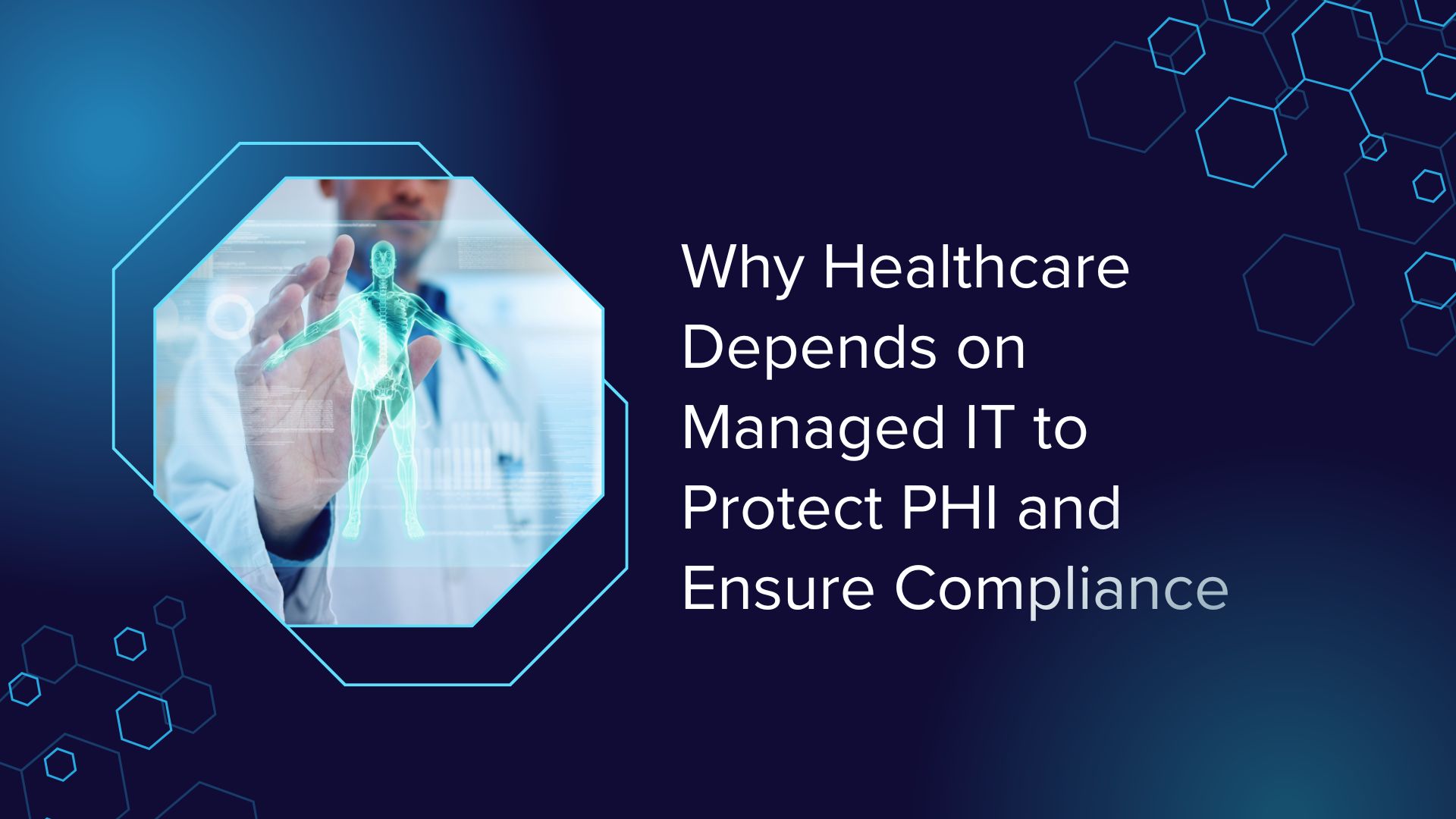Healthcare organizations are handling more data than ever, much of it if not all, in the form of Protected Health Information (PHI). With digitized records, telemedicine, and interconnected devices, securing PHI is essential. Managed IT services tailored to healthcare play a critical role in protecting PHI, streamlining operations, and ensuring compliance with HIPAA, HITECH, and GDPR.
Why Is PHI Security a Growing Concern?
PHI includes a wide range of personal health information, from medical records to billing details. The sensitive nature of PHI makes it a top target for cybercriminals, with healthcare experiencing some of the most significant data breaches across all industries.
In 2023 alone, the healthcare sector experienced a significant increase in data breaches, with over 809 incidents reported in the United States, marking an all-time high. These breaches exposed sensitive information of more than 133 million individuals, underscoring the urgent need for robust data defense strategies in healthcare organizations. Statista
A recent Ponemon Institute study revealed that the cost of a healthcare data breach in the U.S. averages around $10.93 million per incident—the highest among industries. Weaknesses in cybersecurity, outdated systems, and inadequate employee training are often the main causes. By partnering with managed IT services, healthcare organizations can build robust defenses, reduce vulnerabilities, and safeguard against evolving threats to PHI.
The Role of Managed IT in Guarding PHI and Driving Compliance
Managed IT services serve as the protective shield for healthcare organizations, offering comprehensive solutions that reinforce data defenses, enable regulatory compliance, and reduce risk. Here’s how managed IT strengthens both security and compliance:
- Data Defense with Encryption and Access Controls: Managed IT services secure PHI with end-to-end encryption at rest and in transit, while access controls ensure only authorized personnel can handle sensitive data.
- Compliance Audits and Risk Assessments: Regular audits and risk assessments by managed IT providers address vulnerabilities and ensure adherence to standards like HIPAA and HITECH.
- Incident Response Preparedness: Managed IT services create incident response plans to contain and recover from data breaches swiftly, minimizing damage and maintaining compliance.
- Employee Training and Awareness: Managed IT services train staff on cybersecurity best practices to reduce human errors, the root cause of over 80% of healthcare data breaches.
- Advanced Security Technologies: Managed IT uses tools like AI threat detection, Zero Trust security, and endpoint protection to monitor and prevent threats to PHI.
- Data Backup and Recovery: Secure, automated backups from managed IT ensure quick restoration of PHI, reducing downtime and preserving patient trust after disasters.
How Managed IT and Healthcare Consulting Safeguard Data and Ensure Compliance
Managed IT services go beyond protection, boosting healthcare efficiency and compliance. By entrusting data defense to experts, providers can focus on patient care. Here are 3ways managed IT delivers these benefits:
- Minimized Downtime and Cost Savings: Managed IT boosts healthcare efficiency and compliance. By entrusting data defense to experts, providers can focus on patient care. Here are three ways managed IT delivers these benefits:Every minute of downtime affects patient care and adds costs. Managed IT minimizes downtime through proactive systems and enforcing rapid incident response.
- Ensuring Compliance Across All Data Points: Compliance with PHI regulations is ongoing. Managed IT services help interpret requirements, identify gaps, and implement policies that protect PHI and ensure regulatory standards.
- Building Patient Trust and Data Transparency: Patients want to know their data is safe. Managed IT strengthens data security, building trust and ensuring transparency that fosters long-term patient relationships.
A Multi-Layered Approach to PHI Protection
Consider a medium-sized healthcare provider experiencing increased phishing attacks. By partnering with a managed IT service provider, they implemented a Zero Trust architecture, automated threat detection, and frequent compliance checks. Within six months, they reduced vulnerabilities by 40% and increased compliance adherence by 30%. This proactive approach reinforced patient data security while preventing costly breaches.
The Future of PHI Protection in Healthcare
Healthcare organizations are increasingly adopting AI-powered solutions to bolster PHI security. Gartner predicts that by 2026, 40% of healthcare providers will invest in AI solutions for cybersecurity and PHI management. Managed IT providers are driving this transformation, using machine learning for threat detection, predictive analytics, and real-time monitoring. As we approach 2025, it’s only a matter of time before these solutions become standard—now is the perfect time to implement them.
Partner with Systech MSP to Fortify PHI Security and Compliance
Protecting patient data is critical for healthcare providers, and it requires the expertise of specialized managed IT services. Systech MSP offers tailored PHI consulting services that empower healthcare organizations to safeguard data, ensure compliance, and streamline their IT systems.
Take the next step in data defense—reach out to Systech MSP today to learn how our PHI Consulting can shield your organization and protect patient trust.
1 Comment
Comments are closed.


How Co-Managed IT Builds Cyber Resilience – Systech MSP